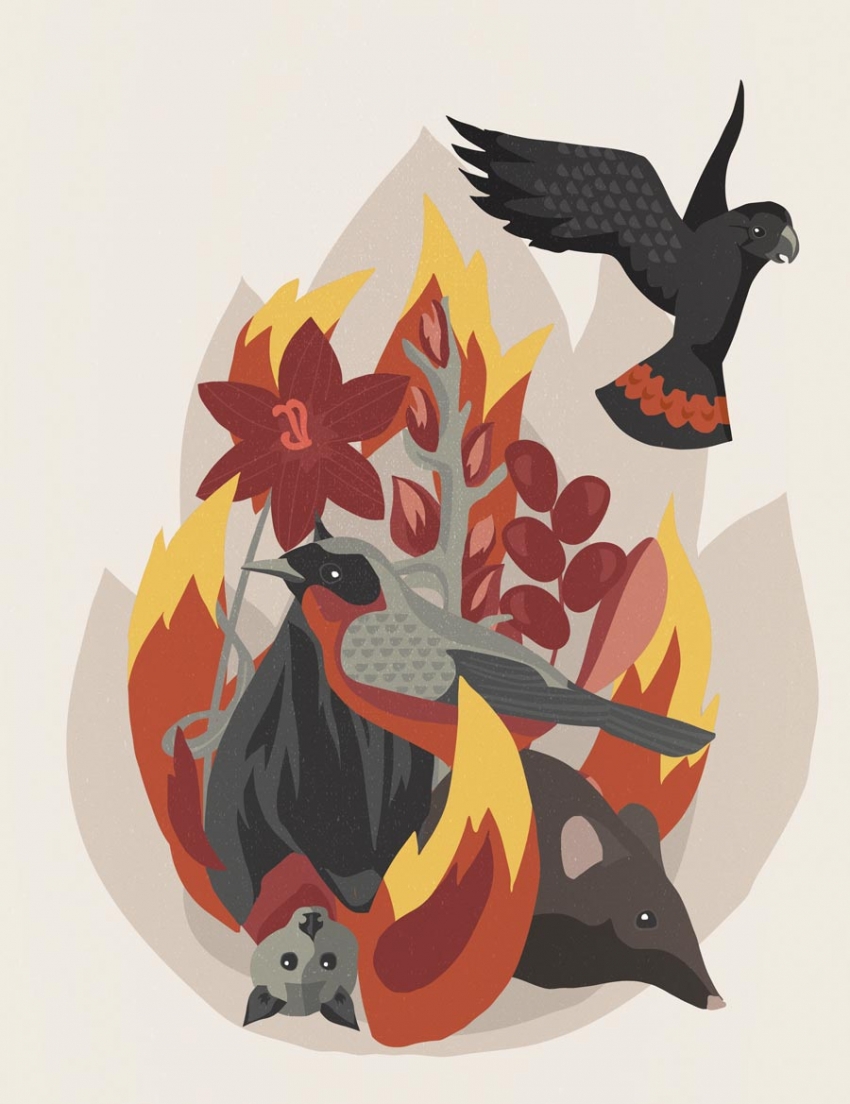Project Description
The Language of Extinction
When wildfires destroy habitats, more than species are lost
For In These Times magazine
It is often the case now that we do not know of an animal’s or insect’s or plant’s existence—do not ever hear its name—until it is almost gone.
When that species lives across the globe from where we live, this is, in one sense, not surprising. And still, it’s strange that language travels this way, the names of things populating faraway tongues for the first time at the moment they are disappearing. Such was the case this winter when I obtained a list published by the Australian Department of Environment and Energy of vulnerable, endangered and critically endangered species whose habitats have diminished since the bushfires began in July 2019. The fires had spread red on the maps, red on the aerial news cameras, as I watched from afar in horror in the midst of winter in the United States, a winter that hadn’t yet made me shiver until I saw the summer flames engulfing the Australian continent, and the images of koalas and kangaroos trying to escape the blazes.
I also wanted to know the names of living beings that weren’t mentioned on the news; I had never heard of the more than 330 species that filled the list. The names alone—to say nothing of the lives of the things in their various habitats—are a poem, the entire bulk of which would not fit here. I felt compelled to read them aloud:
spectacled monarch, magenta lilly pilly, spiral sun-orchid, austral toadflax, shrubby hazelwood, grey-headed flying-fox, glossy black-cockatoo, long-nosed potoroo, Wallum leek-orchid, Wollumbin dogwood, Booroolong frog, marble daisy-bush, regent honeyeater, satin flycatcher, satin-top grass, velvet wattle, milky silkpod, pale golden moth …
For 114 of the species, the report stated, more than half their known habitat has been damaged by fire. As I said their names, I imagined the list not only as a poem but as a roster, with fewer and fewer answering “here.”
{original illustration by Sterre Verbokkem, for In These Times}
